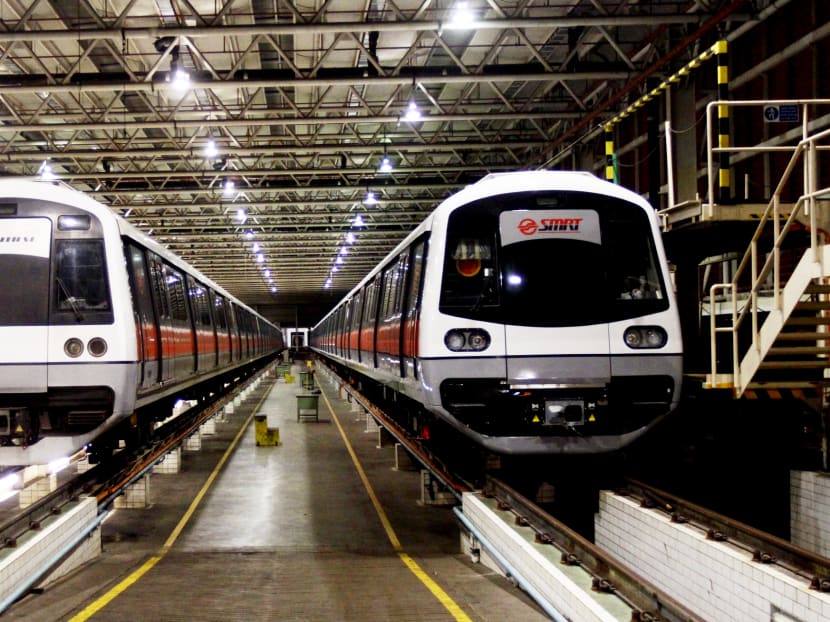Going private would help SMRT make long term decisions: Analysts
SINGAPORE — Going private would allow SMRT to make better long term investment decisions, transport analysts said on Monday (July 18) amid news that state investment company Temasek Holdings is mulling a buyout offer for the transport operator.
SINGAPORE — Going private would allow SMRT to make better long term investment decisions, transport analysts said on Monday (July 18) amid news that state investment company Temasek Holdings is mulling a buyout offer for the transport operator.
Bloomberg, citing unnamed sources, said Temasek is considering buying the remaining 46 per cent of SMRT shares it doesn't already own. SMRT has a market value of about S$2.4 billion in Singapore, according to Bloomberg's data. SMRT has halted trading of its shares since Friday afternoon, when the Land Transport Authority (LTA) announced that it would buy the company's operating assets for S$1 billion.
SIM University senior lecturer Walter Theseira told TODAY that publicly-traded companies tend to have “short-term orientation because they are under pressure to deliver steady dividends and earnings growth to their public shareholders”.
One motivation of going private is to “give management the confidence that the owners have a longer term orientation and will support measures to promote long term growth and sustainability”, he added.
SMRT, which went public in July 2000, neither confirmed nor denied Bloomberg's report. “We do not comment on market speculation and rumours,” SMRT spokesman Patrick Nathan said in response to queries from TODAY.
Temasek spokesman Stephen Forshaw responded in a similar fashion, noting: "Temasek does not comment on market speculation and rumours."
Transport analysts were unsurprised by the news, which came days after the LTA's announcement. The move to buy SMRT’s operating assets for the North-South and East-West lines, the Circle Line and the Bukit Panjang Light Rail Transit will allow it to focus on providing reliable and well-maintained rail services, the LTA said.
Agreeing, Assistant Professor Terence Fan, a transport specialist at Singapore Management University, said that once delisted, a firm can “focus more on making investments that aim to create long-term, sustainable advantages”, without the need to report its performance every few months.
SMRT has said the current rail financing framework has become “unsustainable”. Rail fare margins have been declining since Financial Year 2012, as more rigorous maintenance and replacement regimes increased operating expenses. Actual fares have not kept pace with what was allowable under the Public Transport Council’s fare adjustment formula, the firm added.
Economist Song Seng Wun of CIMB Private Banking told Bloomberg that the purported Temasek buy out would go "hand in hand" with the LTA deal announced last week. "Managing the transport system will be simpler," he added.
Once private, there would also be an opportunity for Temasek to reorganise SMRT substantially, such as by selling off non-core assets, noted Dr Theseira of SIM University.
Such actions are “very difficult to accomplish when a company is publicly owned because decisions have to pass shareholder mandate and will be scrutinised by the market,” he added.







